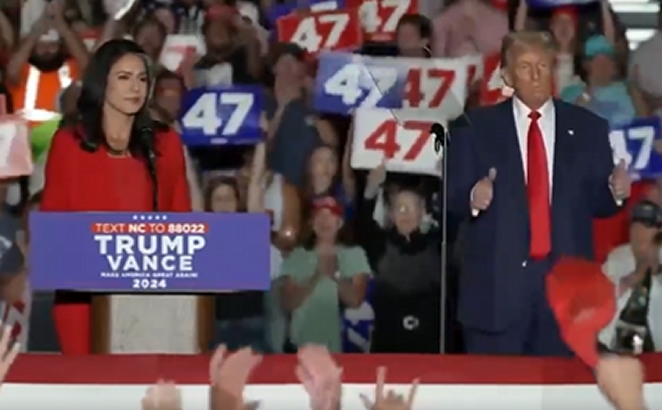President Trump has made a significant shake-up in the national intelligence community by removing Joe Biden’s Acting Director for National Intelligence, Stacy Dixon, and appointing Lora Shiao in her place.
This decision is part of Trump’s broader strategy to eliminate diversity, equity, and inclusion initiatives, as highlighted by an executive order. The move has drawn attention and speculation about the changes Trump intends to bring to the intelligence community.
📣 New Podcast!”Mark 15: The Trial and Crucifixion That Changed Everything”
Stacy Dixon, who was previously associated with DEI initiatives, has stepped down from her role. Reports suggest that Dixon was involved in efforts to obstruct Tulsi Gabbard’s confirmation process. Trump’s nominee for the Director of National Intelligence, Tulsi Gabbard, is scheduled to appear before the Senate Intelligence Committee for a confirmation hearing on January 30.
Lora Shiao, now the acting director, has a history of service within the intelligence community. She previously held the position of chief operating officer under Avril D. Haines, the former director of national intelligence who resigned recently. Shiao’s appointment marks a return to the fold for her, having been promoted during the first Trump administration to lead the National Counterterrorism Center by Richard Grenell.
The decision to replace Dixon with Shiao appears to be part of Trump’s strategy to align the intelligence community with his priorities. The New York Times noted that Dixon’s removal was to ensure that the leadership reflects Trump’s vision for the intelligence agencies.
The reshuffle has not gone unnoticed, with prominent figures commenting on the changes. *”Trump names a new acting director for national intelligence, ousting a Biden official associated with D.E.I. initiatives,”* reported The Times, capturing the essence of the transition.
Give Me Five Podcast
In addition to Dixon’s ousting, President Trump has also dismissed 17 Inspectors General, marking a sweeping change in his first week back in office. This move signals a clear intent to restructure the oversight and operational dynamics within the federal agencies.
The replacement of Dixon with Shiao is seen as a strategic maneuver to bring leadership that is more in tune with Trump’s policies and goals. It reflects a shift away from the previous administration’s focus on diversity initiatives within the intelligence community.
Observers note that these changes could lead to significant policy shifts within the intelligence agencies, as Trump seeks to implement his agenda more broadly. The focus on dismantling DEI initiatives is indicative of a broader trend that may unfold across various departments.
Lora Shiao’s experience within the intelligence community is expected to play a crucial role in her new position. Her past roles suggest she is well-versed in the operations and challenges faced by the intelligence agencies.
The Senate Intelligence Committee’s upcoming hearing for Tulsi Gabbard will be closely watched, as it may provide further insights into the direction the intelligence community will take under the Trump administration.
Supporters of Trump’s decisions argue that these changes are necessary to ensure a more focused and effective intelligence apparatus, free from what they perceive as unnecessary bureaucratic constraints.
Critics, however, warn that the removal of DEI initiatives may lead to a lack of diversity and a narrower perspective within the intelligence community, potentially impacting its effectiveness.
As the dust settles on these initial changes, the intelligence community is bracing for further directives that could redefine its operations and priorities in the coming months.The broader implications of these moves are yet to be fully understood, but they clearly align with Trump’s vision of a streamlined and ideologically cohesive federal government.
Lora Shiao’s leadership will be pivotal in navigating the challenges and expectations set by the Trump administration, as she steps into her role during this transformative period.
The developments within the national intelligence community underscore the dynamic nature of political appointments and their impact on the functioning of federal agencies.


Your fired!
only a few thousand to go.